Probably in the coming year, the first games will use Microsoft's DirectStorage API, which is intended to better utilize SSDs and thereby reduce loading times. However, there is potential for optimization with the SSDs, as indicated by benchmarks with a new firmware from Phison.
The Tom's Hardware website has received an SSD sample with an E18 controller from Phison , which is equipped with a new “game-optimized I/O+ firmware”. This means that the SSD should be better attuned to the requirements that have changed with DirectStorage and bring more performance to these workloads.
As is well known, DirectStorage ensures that game data (e.g. textures) no longer has to take the detour via the CPU, but is transferred directly from the SSD via the main memory to the video memory of the graphics card and is instead decompressed there by the GPU, which is much faster in this respect.
While the usual everyday applications of SSDs tend to require short sequential load peaks or 4K random read accesses with a small command queue (Queue Depth, QD), the workload for games with DirectStorage is completely different:
However, DirectStorage uses large random reads at very high queue depths. So here we are dealing with large block sizes of over 32 KB and a queue depth of over 512, which is representative of a potential DirectStorage workload.
Shane Downing, Tom's Hardware
And it is precisely this type of workload that was simulated in the test of the website using the Iometer tool. The different scenarios had to go through the Phison SSD with special firmware and other SSDs with Phison E18 (Kingston KC300, Sabrent Rocket 4 Plus) as well as models with proprietary controllers like the Samsung 980 Pro, the WD Black SN850 or the Crucial P5 Plus.
-
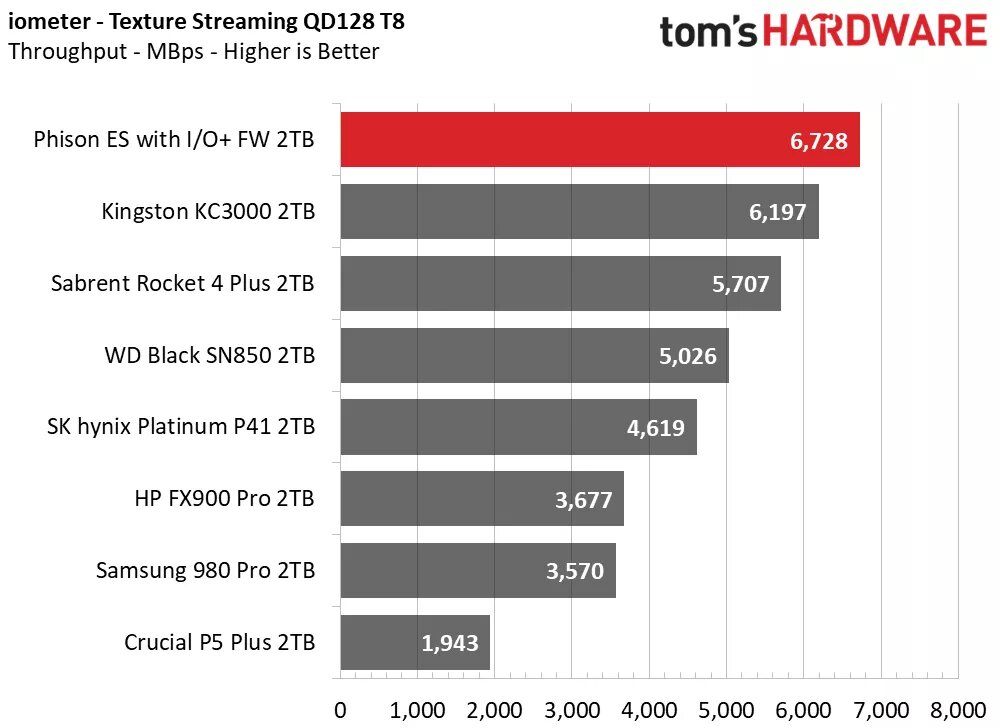 Simulated DirectStorage gaming load in the benchmark (Image: Tom's Hardware)
Simulated DirectStorage gaming load in the benchmark (Image: Tom's Hardware)
Image 1 of 3
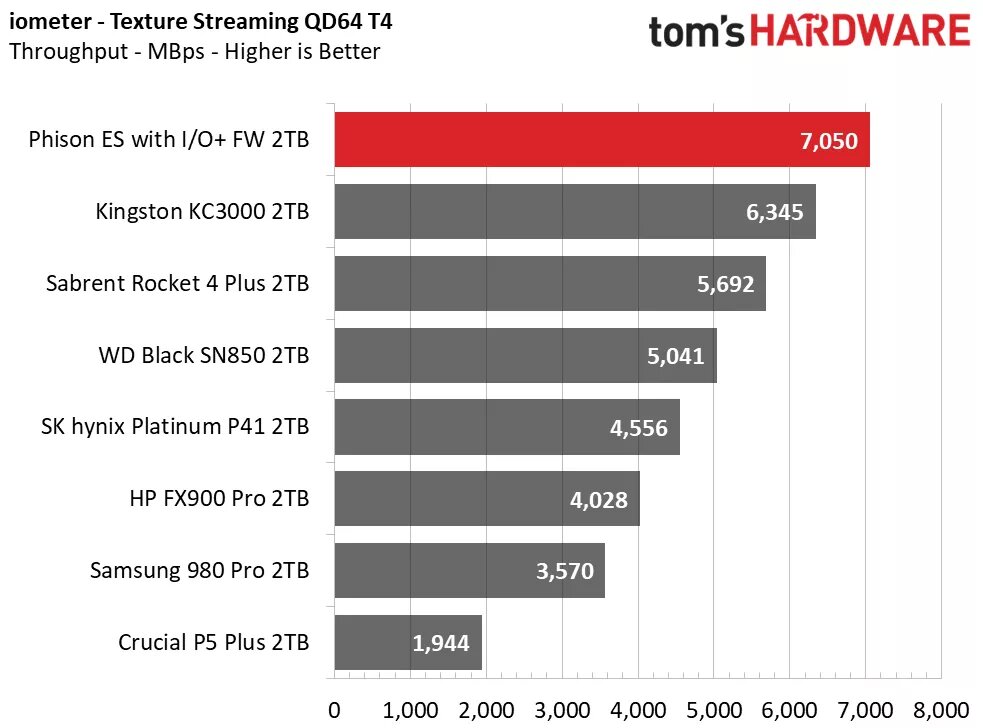
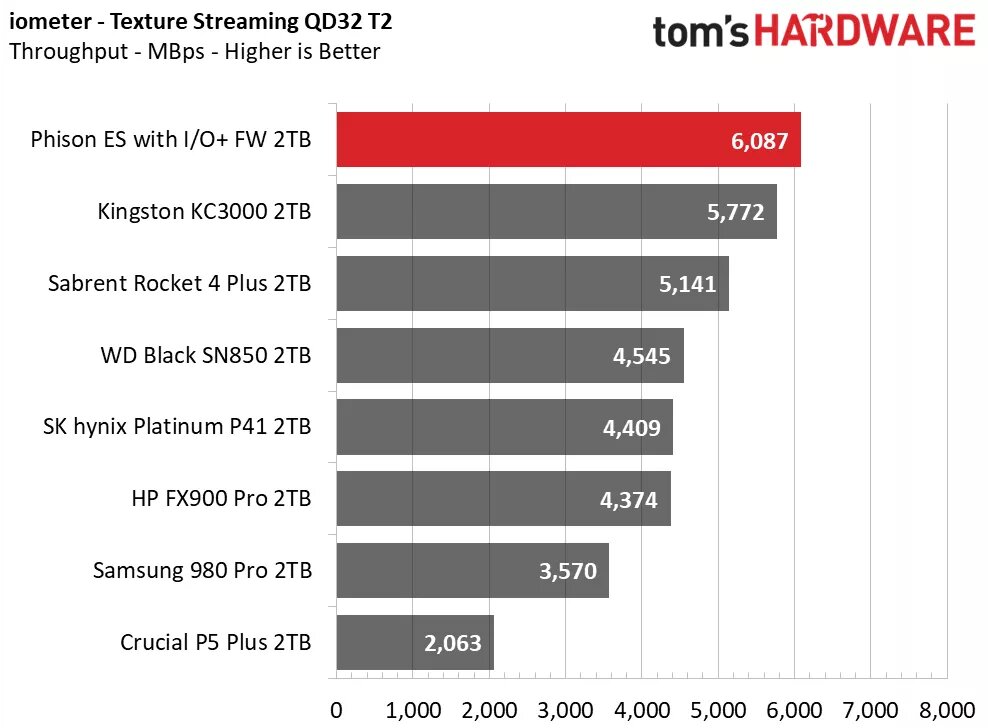
Simulated DirectStorage gaming load in the benchmark (Image: Tom's Hardware)
The result: As expected, the Phison SSD optimized for this type of workload is the fastest and lies a few percentage points ahead of the Kingston KC3000. The worst performers are the Samsung 980 Pro and the Crucial P5 Plus.
There is also a constant stream of data from the SSD via DirectStorage, which requires constant reading performance over the gaming session, which can last several hours, which further tests simulated. The optimized firmware once again has a clear advantage here, while other SSDs with Phison E18 show significant performance fluctuations. The WD Black SN850 works very consistently, but with a lower transfer rate. The Samsung 980 Pro is also stable in terms of performance, but with a significantly lower transfer rate. The Crucial P5 Plus, on the other hand, is “clearly not optimized for this type of workload,” writes the author.
- < figure class="gallery__figure">
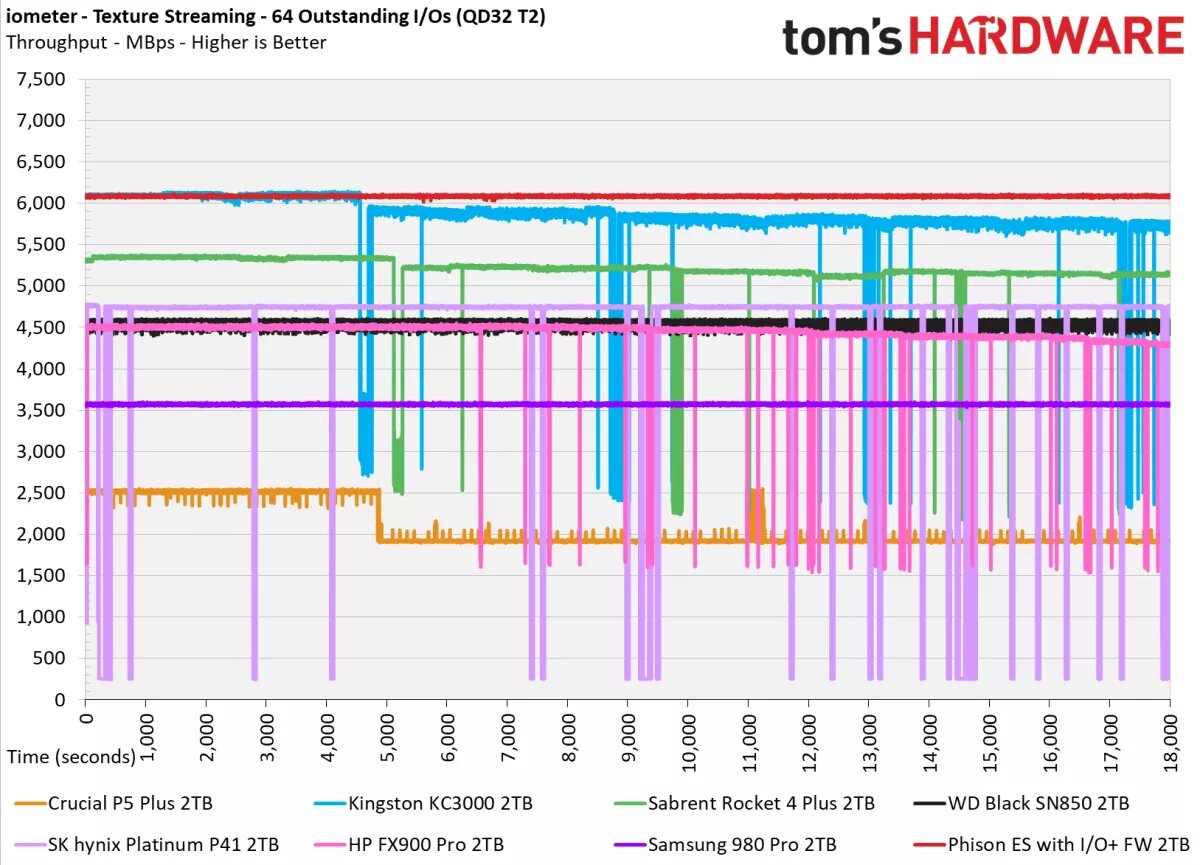 Simulated DirectStorage gaming load in the benchmark (image: Tom's hardware)
Simulated DirectStorage gaming load in the benchmark (image: Tom's hardware)
< /ol> Image 1 of 3
Simulated DirectStorage gaming load in the benchmark (Picture: Tom's Hardware)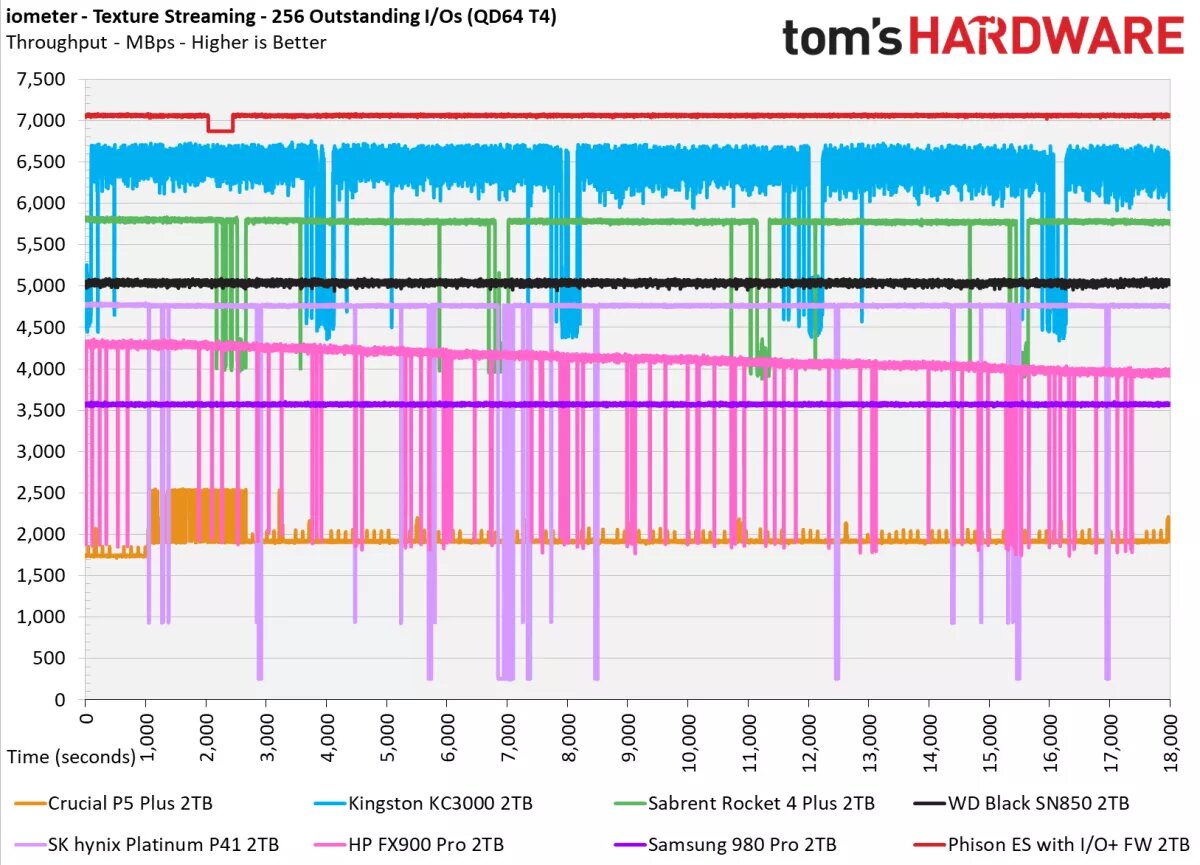

Even if this is only a simulation and we have yet to see what games with DirectStorage support can be demanded of an SSD, the tests should show that there is definitely optimization potential on the part of the SSDs and their firmware.
There should be nothing else behind the upcoming WD Black SN850X stuck: According to the report, this is simply a refreshed SN850 whose firmware is optimized for gaming. So it's not just Phison who sees a need for optimization.
Forspoken, one of the first games with DirectStorage support, is late though. Real tests of the new Microsoft API will probably have to wait until next year.